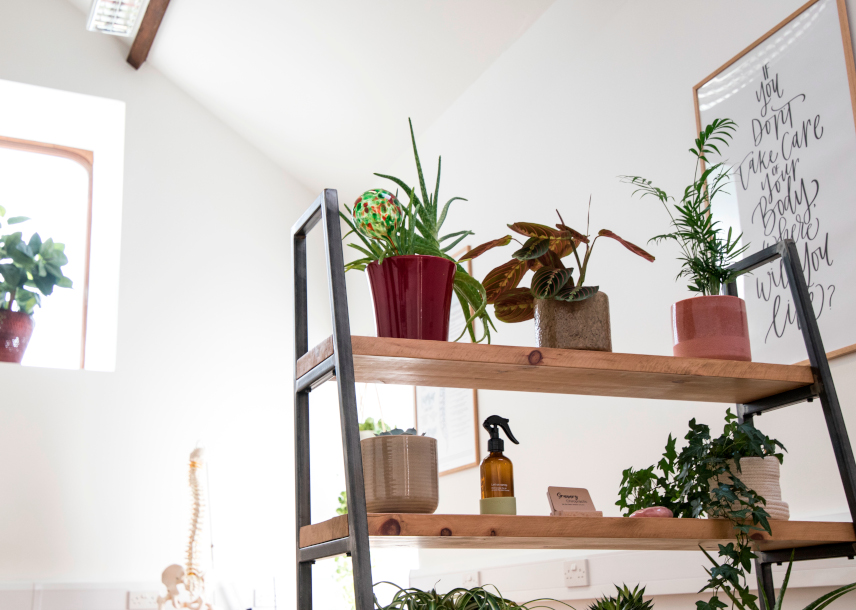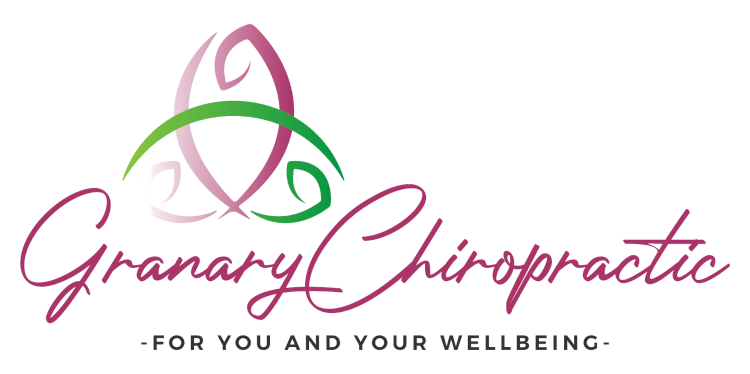
How To Eat a Balanced Plant-Based Diet
When it comes to our health, there seems to be a gap between knowing what is good for us and implementing that information. I find this super frustrating and often ask the question why. We all know, for example, that we should eat our five to ten portions of fruit and vegetables a day, it’s one of the only non disputed concepts in nutrition, yet people still don’t do it. Why is that? I believe a big part of this is because most of us don’t really know why we should be doing it. It’s no good being told what to do, if we don’t understand how and why it will benefit us.
If I’m honest, I ask the why question a lot. My journey to nutrition has been over many years and started from being unable to boil an egg when I left home at the age of eighteen. In 2016 I completed a naturopathic nutrition course and things started to fall into place. Part of me couldn’t believe I didn’t know this information before and that learning about the power of nutrition was not a central part of our standard school curriculum, but at the same time I was really excited by the information I now had and the idea that implementing it could have such a profound impact on my life, and on the health of my clients.
There are so many facts and figures on the benefits of eating more plants, but one of the areas that stands out most is how good it is for our gut and how this then impacts our overall health. Here are some of those facts and figures of why out gut is so important:
- Our gut is directly linked to our brain via the gut-brain axis, which means that our gut is in constant communication with our brain and therefore impacts on our mental health, as well as our physical health.
- About 90% of our serotonin, our happy hormone, is made in our guts, again showing the link between our gut and our wellbeing.
- 70% of our immune cells live within our guts, so we need a healthy gut for a healthy immune system.
- Our gut needs fibre, which we find in plant-based foods such as fruit, vegetables, grains, nuts, seeds and pulses. Fibre is the gut bacteria’s favourite food and for gut health we should aim to include thirty different plant-based foods in our meals each week. Try switching up your veggies in a stir fry, blending some roasted vegetables into hummus or adding a handful of greens into your pasta, this way it’s easy to get the numbers to start adding up.
If you are altering your diet to include more plants or plant-based meals then you may be wondering how to make it a healthy, balanced diet. I did a lot of reading when I first started to change my diet, so that I could understand how you could get calcium, iron, protein and all the other nutrients we need from a vegan diet. This was something that I had never really appreciated before. So, I wanted to clear up some of the confusion and outline some of the ways in which you can eat a balanced plant-based diet.
What to look for in a plant-based diet
Protein
Your body contains thousands of different proteins, all of which are made up from amino acids. There are twenty different amino acids that combine to form these proteins, eleven of which can be made by your body and nine of which can’t be, and these ones must come through your diet. Lots of plant sources of protein only contain four or five of these amino acids, which means you need to eat a variety of ingredients each day to get the full spectrum and create complete proteins. The average adult needs between 45g and 56g of protein per day. Active individuals or pregnant women need more than this.
Good sources of vegan protein are tofu, tempeh, and edamame beans (these are all complete proteins). Quinoa is also a complete source of protein. Lentils, chickpeas and beans are amazing because as well as being a source of protein, they are full of dietary fibre and nutrients. Hemp seeds are great added to smoothies or sprinkled over breakfast. Peas are another rich source of protein. Nuts, nut butters, seeds and tahini are all very versatile and could be added to most foods.
Iron
Iron has many important roles in the body. It is crucial for energy, hair health, thyroid health, immunity and brain function. About 70% of your bodies iron is found in red blood cells where it binds and transports oxygen around the body, this means that if levels drop you can really notice it, with low energy, feeling dizzy or faint, or struggling with exercise and concentration. Because of menstruation and childbearing, women have a higher risk of deficiency and therefore need to eat more iron (around 14g per day) than men (around 9g per day). Iron comes in two forms in our food. Haem iron is only found in animal sources and is easily absorbed, whereas non-haem iron is found in plant sources and isn’t absorbed as efficiently, so we need to be eating enough iron rich foods to keep our levels high enough.
Iron requires vitamin C for absorption, so having vegetables or fruit alongside grains and nuts is recommended and it’s worth noting that tea and coffee can also reduce absorption of iron. Leaving time between these drinks and meals will really help.
Good sources of plant-based iron are lentils, chickpeas, beans, tofu, quinoa, beetroot, cocoa, sesame seeds, tahini, pumpkin seeds, spinach, swiss chard, kale, dried apricots, dates, figs and raisins.
Calcium
Calcium is required by the body for our bones and teeth, but it also keeps our blood at the right pH and is needed for muscle contractions. We tend to think of calcium rich foods as all being dairy products, but plant-based foods contain equally good levels of calcium meaning it isn’t difficult for a plant-based diet to supply enough calcium, if you are eating a variety of different foods. Eating a wide variety of ingredients everyday makes getting all the vitamins and minerals you need a lot easier. Vitamin D is required for calcium absorption in the gut, so having your levels checked can be important, especially if you aren’t exposed to much sunlight or have darker skin tones, since vitamin D comes from sunlight.
Great sources of plant-based calcium include cabbage, kale, broccoli and cauliflower, sesame seeds and tahini, almonds, edamame beans, tofu, flax seeds and lentils.
Healthy fats
Fat has been seen as bad for a very long time, but our bodies need a constant supply of the right types of fat to stay healthy. Healthy fats work to support our mood, memory, hormone balance, immunity, cardiovascular health and joints, as well as keeping our hair and skin healthy, so we want a good amount of omega 3, 6 and 9 fatty acids.
Unlike older dietary advice, research now shows that we don’t need to be afraid of saturated fats, if they are supportive of immunity, energy and brain health. The plant-based foods that contain some beneficial saturated fats (such as those found in peanuts, macadamia nuts, avocado and coconut oil) also tend to contain other nutritious compounds such as fat-soluble vitamins, fibre and antioxidants. A plant-based diet rich in nuts, seeds, avocado and olive oil tends to contain good levels of omega 6 and 9 fatty acids, however deficiency of omega 3 is more common since this is mostly found in oily fish. It is important to keep the ratio of omega 3 to 6 balanced. Walnuts, flaxseed, milled chia, leafy green vegetables and spirulina are good plant-based sources of omega 3 so look to include these whenever you can.
It is worth remembering that these plant-based omega 3’s need converting into other forms to fulfil their function in the body, and this requires magnesium, B6 and zinc. This shows how important a balanced diet is since nothing works alone in our bodies.
Zinc
Another important nutrient to consider is zinc, which is needed throughout the body, and is involved in over 300 reactions that keep immunity, mood, energy, hormones, skin and memory working properly. It is a nutrient that becomes easily depleted in those that are stressed, drink alcohol or smoke. Zinc is found in lower levels in plant-based foods, so it is important to make sure you have enough to help avoid a deficiency, especially as it helps you process omega 3 properly in the body.
The best sources are tahini, sunflower seeds, cashews, pumpkin seeds, chickpeas, lentils and raw cocoa. Hemp seeds are also a good source.
Supplementing B12
If you are eating a varied, balanced plant-based diet then you should be able to get everything you need from your diet except vitamin B12, which is found in animal products. B12 is required for DNA synthesis, detoxification, fertility hormone balance, brain function and the nervous system. The impacts of B12 deficiency are far reaching, so getting your levels checked is a must if you have been eating plant based for more than six months and plan to continue. If you do need to supplement, then it’s advisable to consult your doctor or a nutritionist about what dose you might need but choosing an absorbable form is a good idea.
But remember
These are all general recommendations, and everybody has different nutrient requirements. If you feel you need more detailed advice, a good nutritionalist is a great place to start. Having said that, the most important thing to remember is that there is no such thing as perfect. Some meals will be more balanced than others and that’s fine, it’s about what we do over a lifetime, not a day that matters. And enjoying your food is vital to your wellbeing, well I think so any way.
Love Kat, x

Finding Calm

